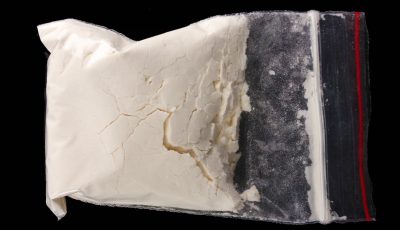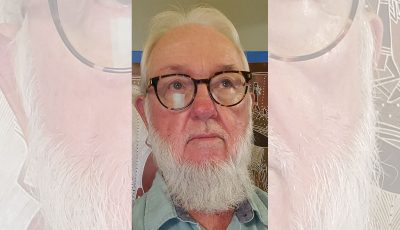Man resentenced to 2 yrs. in prison for ‘ice’ possession
Superior Court Associate Judge Joseph N. Camacho resentenced yesterday to two years in prison Fu Zhu Lin, a scooter operator that he earlier slapped with the full maximum sentence of five years in prison for possession of less than a gram of methamphetamine or “ice” at a sobriety checkpoint.
Camacho ordered Lin, a Chinese national, to serve the two years in prison day to day, without the possibility of parole. Lin was given credit for time served. He was ordered to pay a $2,000 fine.
Camacho said the presentence investigation reports prepared by the Office of the Adult Probation were informative but there was nothing in them that he did not already take into account at Lin’s initial sentencing.
Camacho said he was prepared to impose the same sentence of five years in prison but the government framed its argument at the resentencing in a different way.
The judge noted that at the first sentencing hearing, the then-assistant attorney general simply framed the issue that Lin had been arrested and that the previous 2010 case was dismissed.
The 2010 case that the prosecution dismissed charged Lin with trafficking and possession of “ice” and resisting arrest.
Camacho said that assistant attorney general Shannon Foley was much more forthcoming with the court at the second sentencing hearing (yesterday and Wednesday).
Camacho said Foley stated that the reason Lin’s first arrest in connection with the 2010 case was dismissed was due to a mistaken identity.
The judge said Lin’s first case in 2010 highlights the power of the prosecutor to wreak havoc with a person’s life.
Camacho said that Lin was a productive employee prior to his first arrest in 2010.
“Defendant was wrongly arrested on mistaken identity and languished at the Department of Corrections causing him to lose his job,” he said.
By the time the prosecutor realized the mistake and dismissed the case, it was too late for Lin as his employment status had already been destroyed, Camacho said.
“While the prosecutors went about ‘practicing being lawyers’ [and] going about their merry way, this defendant had to try to make a living doing odd jobs,” he said.
“Whether the defendant eventual use of drugs and arrest in this 2011 case a direct cause of the Prosecutor’s Office wrongly charging him back in 2010, we will probably never really know,” the judge said.
Camacho said it just seems that something is unfair about the situation.
From 2002 to 2010, Lin worked at several garment factories and restaurants. His last employment was at the Tinian Dynasty before his first arrest in 2010.
Camacho said Lin should be punished for his crime in the 2011 case and that there is absolutely no question about that. But the court, he said, also takes into account the destruction of Lin’s life and employment, which was initiated by the wrong actions of the prosecutors back in 2010.
At the resentencing, Foley recommended a sentence of four years with a $2,000 fine.
Assistant public defender Eden Schwartz, counsel for Lin, recommended a sentence of 18 months with a fine of $2,000.
Camacho said he is not persuaded by the defendant’s argument that he should be given a lenient sentence because he only used drugs a few times.
“As the saying goes, even the smallest root leads to the tree, so too that every illegal drug user contributes to the continuation of illegal drug trafficking,” he said.
In a bench trial in March 2013, Camacho found Lin guilty of illegal possession of controlled substance.
A day after the trial, Camacho sentenced Lin to five years in prison.
Lin appealed, asking the CNMI Supreme Court to reverse his conviction.
In June 2014, the high court affirmed Lin’s conviction but vacated the five-year sentence and returned the case to the Superior Court for resentencing. The high court agreed with Lin that trial courts must provide an adequate explanation before declining to order a presentence investigation report.
According to court records, police officers seized a small baggie containing “ice” from Lin’s companion, Mei Ying Qi, after the officers saw Lin passing the item to Qi at a sobriety checkpoint in Chalan Piao on Dec. 24, 2011.
Lin was driving a scooter with Qi as his passenger when they were randomly waved into the sobriety checkpoint by an officer.
Upon entering the checkpoint, Lin encountered another officer, who found an expired 2005 registration sticker on the license plate of Lin’s scooter.
An officer then did a pat-down search of Lin and noticed him passing an item to Qi, who immediately concealed the item in her blouse. The officer retrieved the item, which later tested positive for “ice.”



























